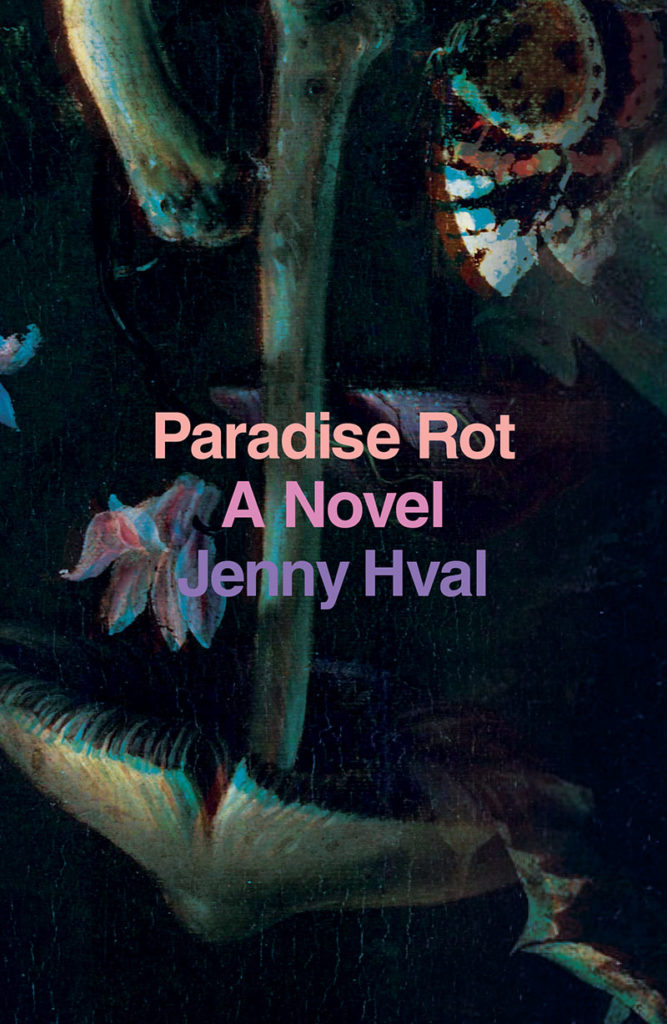
Some novels have a sense of place. Jenny Hval’s Paradise Rot drips with it. This is the story of a young woman named Jo, who’s come to study in a country other than her own. Where she’s from and where she is are never crucial to the plot — there’s a brief mention of Jo as Norwegian, and of certain locations in the south of England, but specifics, at least these specifics, aren’t the point here. Our protagonist is far from home, speaking a language that isn’t her first, and living among people with whom she’s out of sync. This is a novel about dislocation, about being out of step with a place. It’s also a ghost story — perhaps several varieties of ghost story.
After several failed attempts to secure housing, Jo ends up taking a room in the home of a woman named Carral Johnson. It’s a dilapidated structure that once served as a factory, and it seems half-wild already: mold blossoms in the bathroom, a series of rotten apples rests on a table, and at one point Jo calls it “raw and porous.” “It didn’t shut out the word outside like the houses at home,” she notes – and here, too, can be found one of the paradoxes at the heart of the book.
A textbook Jo studies for one of her courses notes that objects in nature belong to two categories: “The non-living and the living.” While semantically true, that question of life and what comes next, both literally and metaphorically, suffuses the text. The factory, for instance, has taken on an afterlife as a residence for these two women. It acts as a kind of liminal space, however, a place that no longer serves its old function but hasn’t quite gotten the hang of its current vocation either.
Carral herself is an enigma as well. She occasionally drifts off to sleep in odd places; she develops an attachment to Jo that borders on the sexual, but still rests in ambiguity. Late in the novel, someone notes that they’d heard that the factory in which they live (which may, as it turns out, be an abandoned brewery — still more ambiguity) was haunted. Carral’s response is telling: “Are you saying we’re ghosts?”
Readers expecting a Sixth Sense-style twist ending will walk away disappointed, but this line of dialogue remains more loaded than a casual observation made in a bar might attest. Are Jo and Carral ghosts? Well, Jo moves through life at a remove, feeling fundamentally different from those around her; Carral, meanwhile, seems on another plane of reality completely. She’s elusive, mercurial, and unpredictable. With an abundance of ambiguity and a fantastic sense of place, Jenny Hval has turned the ghost story into something new and immersive. This is a novel with the power to haunt.
***
Paradise Rot
by Jenny Hval; translated by Marjam Idriss
Verso; 148 p.
Follow Vol. 1 Brooklyn on Twitter, Facebook, and sign up for our mailing list.
